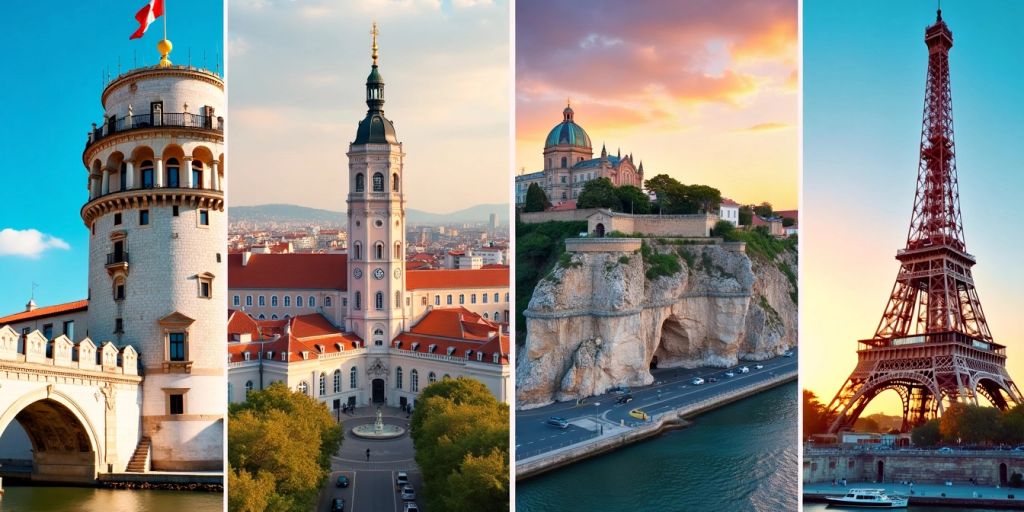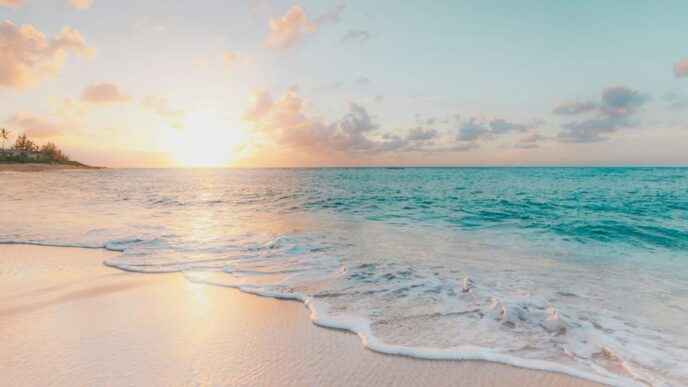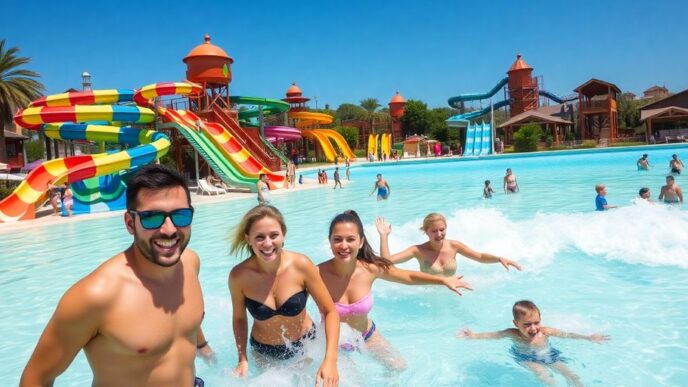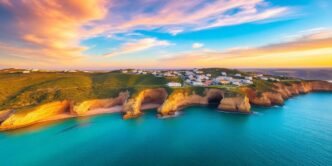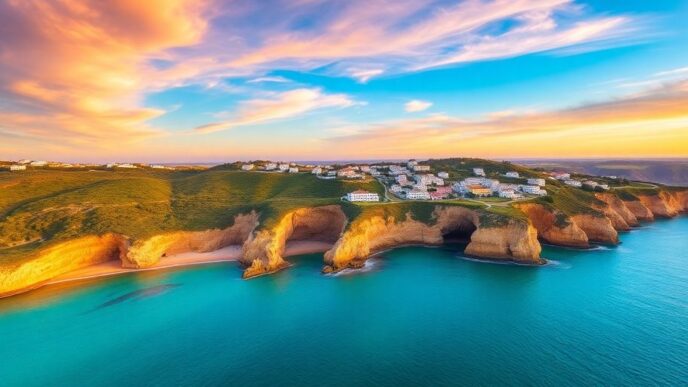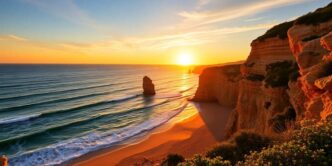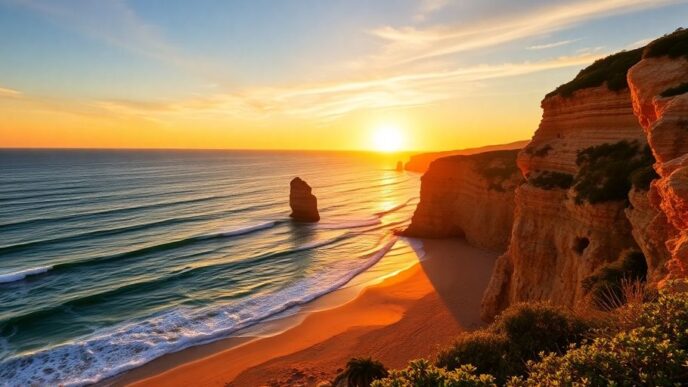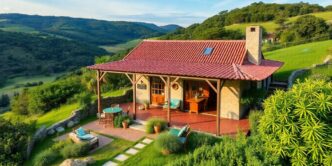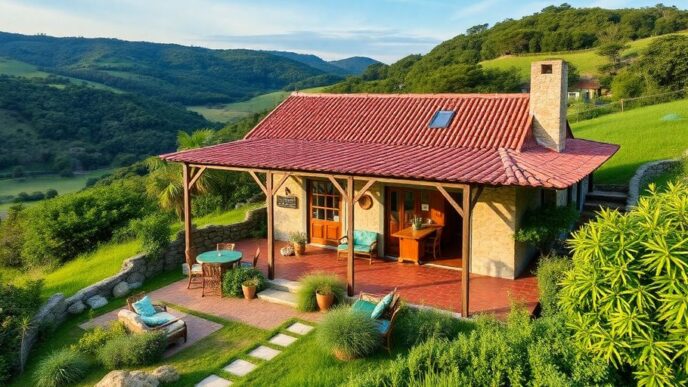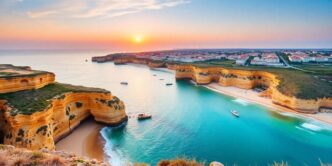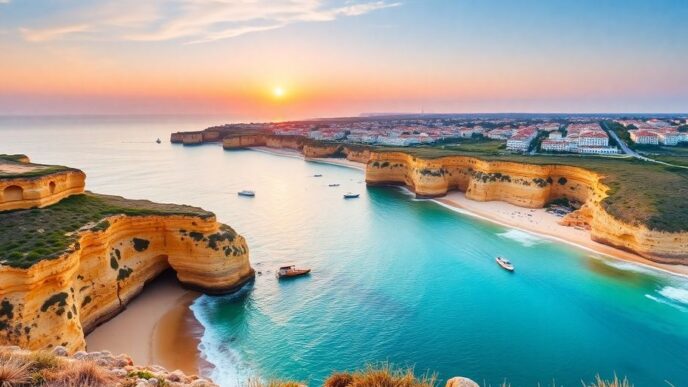The Ancient Roots of Portugal, Spain, and France
Prehistoric Settlements and Cultures
Humans have lived in Portugal for around 400,000 years. The oldest human fossil found in Portugal is the 400,000-year-old Aroeira 3 skull. Early settlers in the Iberian Peninsula came from North Africa and the Eastern Mediterranean. These groups included the Phoenicians, Greeks, and Carthaginians. They established trading posts and settlements, especially on the eastern and southern coasts.
The Influence of the Celts and Iberians
In the first millennium BC, waves of Celts invaded Portugal from Central Europe. They intermarried with local populations, forming different tribes. The Celtiberians emerged from the mix of Celts and Iberians. The Lusitanians, who lived in Portugal’s interior, are considered the forefathers of the Portuguese nation. They successfully resisted Roman armies until their leader, Viriathus, died.
Roman Conquests and Integration
The Romans conquered the Iberian Peninsula, integrating it into the Roman Republic. They named the province of modern Portugal and part of western Spain after the Lusitanians. The Romans left various works, such as baths, temples, bridges, roads, theaters, and statues. Some of these structures are still found in different parts of the country today.
Medieval Transformations in the Iberian Peninsula and France
The Visigothic and Frankish Kingdoms
The Visigothic territories included modern Spain, Portugal, and parts of France. The Visigoths ruled the Iberian Peninsula until the Moors invaded. The Frankish Kingdom, under Charlemagne, controlled parts of modern France and Germany. Charlemagne’s reign saw significant academic and literary reforms.
The Umayyad Conquest and Al-Andalus
The Moors, a mix of Berbers and Arabs, conquered the Visigothic kingdom. They called their Iberian territories al-Andalus. By 718, most of Portugal was under Umayyad rule. The Caliphate of Córdoba ruled much of Iberia until 1031, when it split into smaller Taifas kingdoms.
The Rise of Feudalism and Christian Kingdoms
The Christian Reconquista began in 718 with the Battle of Covadonga. Pelagius, a Visigothic noble, led the rebellion against the Moors. The Kingdom of Asturias was founded, marking the start of the Reconquista. Over time, Christian kingdoms like Castile and Aragon emerged, eventually uniting Spain.
The Age of Discovery and Colonial Empires
Portugal’s Maritime Pioneers
Portugal led the Age of Discovery from the 15th to 17th century. Prince Henry the Navigator initiated this era. Portuguese mariners explored Africa and the Atlantic. They established the first global empire. Key events included the Treaty of Tordesillas and the rise of the spice trade.
Spain’s Conquests in the Americas
Spain surpassed Portugal in the 1500s. Christopher Columbus’s 1492 voyage accelerated Spanish exploration. Spain’s monarchs sponsored extensive Atlantic exploration. The Treaty of Tordesillas divided new lands between Spain and Portugal. Spain gained vast territories in the Americas.
France’s Colonial Ambitions
France joined the colonial race later. They established colonies in North America, the Caribbean, and Africa. French explorers sought new trade routes and resources. France’s colonial empire expanded significantly in the 17th and 18th centuries.
Cultural and Artistic Flourishes
The Renaissance and Baroque Periods
During the Renaissance, Portugal, Spain, and France saw a surge in artistic achievements. Spain’s golden age brought forth masterpieces like Diego Velázquez’s Las Meninas. In France, the Baroque period led to the construction of grand palaces and churches.
Literature and Philosophy
The literary world flourished with works like Miguel de Cervantes’ Don Quixote. French philosophers like Voltaire and Rousseau shaped modern thought. Portugal contributed with epic poetry, notably Os Lusíadas by Luís de Camões.
Architectural Marvels
The Iberian Peninsula and France are home to stunning architectural feats. Spain boasts the Alhambra and Sagrada Familia. France is known for the iconic architecture of the Notre-Dame Cathedral and the Palace of Versailles.
Modern Political Changes and Conflicts
The Napoleonic Wars and Their Impact
The Napoleonic Wars reshaped Europe. Portugal, Spain, and France were deeply affected. Napoleon’s invasions led to significant political changes. In Spain, the Peninsular War sparked resistance. Portugal faced occupation and a royal family exodus. France saw the rise and fall of Napoleon’s empire.
The Spanish Civil War and Francoist Spain
The Spanish Civil War (1936-1939) was a brutal conflict. It pitted Republicans against Nationalists. General Francisco Franco led the Nationalists to victory. Franco’s dictatorship lasted until 1975. This period was marked by repression and censorship.
Portugal’s Carnation Revolution
The Carnation Revolution occurred on April 25, 1974. It was a nearly bloodless military coup. This event ended decades of dictatorship. The revolution led to the establishment of the Third Portuguese Republic. Democratic reforms were implemented, transforming Portugal’s political landscape.
Shared and Divergent Paths in the 20th and 21st Centuries
Economic Developments and Challenges
In the 20th century, economic studies show that Portugal, Spain, and France faced different economic challenges. Portugal struggled with slow growth, while Spain experienced rapid industrialization. France, on the other hand, maintained a stable economy.
European Union Membership and Integration
All three countries joined the European Union, but their experiences varied. Portugal and Spain joined in 1986, benefiting from economic aid. France, a founding member, played a key role in shaping EU policies.
Cultural Exchange and Influence
Cultural exchange among these nations has been significant. They share a rich history of art, literature, and philosophy. Festivals, cuisine, and language have also influenced each other, creating a unique blend of cultures.

